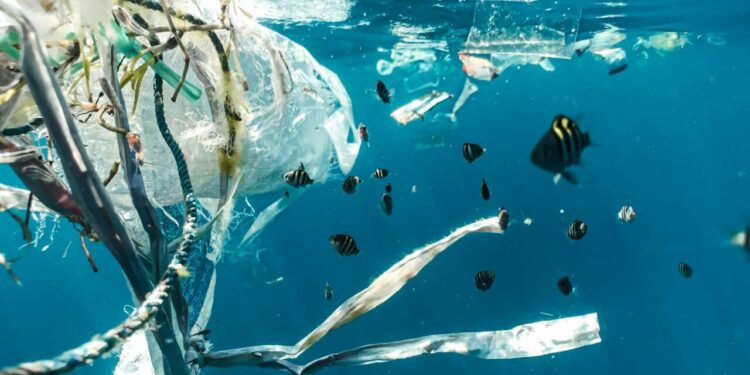The Central Pollution Control Board (CPCB) and State Pollution Control Boards (SPCBs) have issued the notification asking manufacturers, suppliers, and consumers of single-use plastic items to scrap and phase out single-use plastic items and switch to greener and sustainable alternatives.
The following plastic items have been banned from July 1st, 2022: balloon sticks; cigarette cling film packs; cutlery items including plates, cups, glasses, forks, spoons, knives, trays; earbuds; sweet boxes; candy and ice cream sticks; Invitation cards; polystyrene for decoration; and PVC banners measuring under 100 microns. The ban includes not just the use of plastic items but also their production. Plastic bags of thickness less than 120 microns will also be phased out from December 31, 2022. Thousands of other plastic products – such as plastic bottles – are however not covered by this ban.
Like roads and streets, our coasts and beaches too are littered with various types of plastic. Experts believe that approximately 80% of the debris found in the oceans originates onshore. According to a 2017 study titled ‘Prevalence of marine litter along the Indian beaches’, the Odisha coast has the lowest (0.31 g/m2) quantity, and Goa coast (205.75 g/m2) the highest quantity of beach debris. Quite surprisingly, the archipelagic coasts of Andamans, as well as Lakshadweep had more trash than Kerala, Tamil Nadu, Andhra Pradesh, Odisha, and West Bengal.
Litter on Goa’s beaches can be primarily due to tourism and entertainment-related activities. However, fishing-related activities also contribute to beach litter. As per government data, there are 16 fishing villages in North Goa and 23 in South Goa. Nearly 12,000 people (as per 2010 data) are actively engaged in fishing. By analyzing beach debris, the research group found that nylon nets/fishing lines (group A-Nylon/HDP ropes/fish net pieces/long lines) registered the highest mean (75.67 g/m2) in Goa and the lowest mean (0.01 g/m2) in West Bengal.
A maximum of 543 g/m2 debris from the Group-A items have been found in Goa beaches. For Group-B items, which include Plastics (covers, carry bags, sachets, PET bottles like beverages, drinking water, medicine etc., containers of milk, creams, oil, ointments, toothpaste etc.) it was 110g/m2. Group-C items containing synthetic slippers/footwear (other than leather items) were 110g/m2. Group D items that included glass bottles, electric bulbs, and CFL bulbs had 500g/m2. Group-E contains e-waste (TV/computer hard wares, mobile phone handsets or parts, chargers, battery- operated toys, CDs etc.) had the lowest (10 g/m2) among all the types of debris. Group-F items include thermocol, PUF insulators of AC/Fridge, Styrofoam, etc., with a concentration of 93.2 g/m2. It is apparent that fishing and tourism-related activities are equally responsible for litter generation on the beaches of Goa. Many of the items listed in these groups have now been banned in India.
As per the US National Oceanic and Atmospheric Administration, cigarette-butts are the most common types of marine debris found. The Ocean Conservancy’s 2018 International Coastal Cleanup Report also stated that 2,412,151 cigarette butts were collected worldwide at clean-up sites in 2017. This is an increase from the 1,863,838 butts collected in 2016. Campaigns run by several non-government agencies for more than 100 days in 2019, partially helped contain cigarette butts, glass, and plastic bottle litter on some of the Goa beaches. Shacks and eateries offering foods on the beaches have been sensitized on stopping the thermocol cutlery. But in absence of cheaper and ‘greener’ alternatives, vendors are apprehensive of complying with the ban of such items. For the time being, management of the waste generated seems to be the only plausible solution.
As part of the ongoing Swachh Sagar Surakshit Sagar campaign, local communities and tourists at 75 beaches would be sensitized on reducing plastic use, reuse, and recycling them as much as possible. The most effective way to minimize plastic pollution is to stop it from entering the oceans. Beach cleanup campaigns can make a positive difference if done continuously. (India Science Wire)


















Discussion about this post